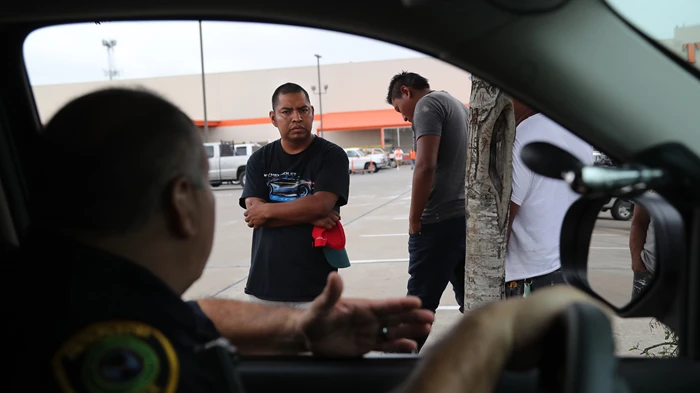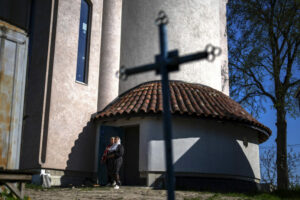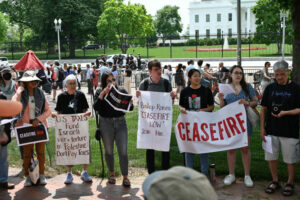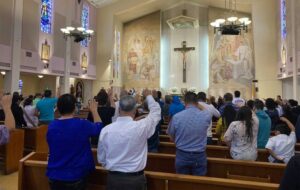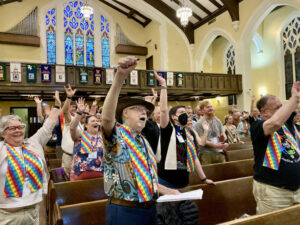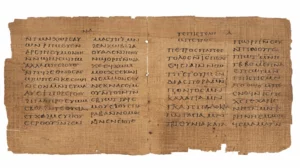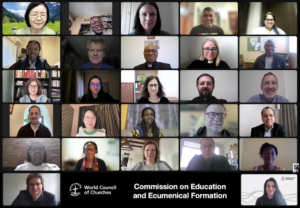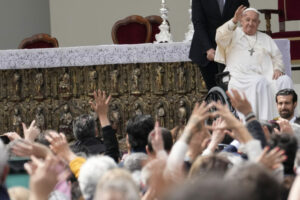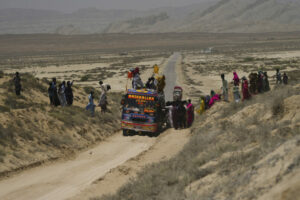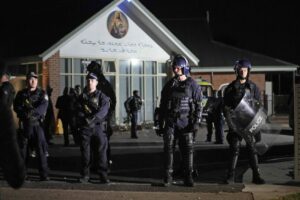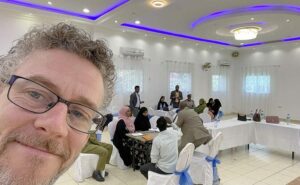Palm Sunday looked different this year for a small majority-immigrant church in Fort Worth. For part of the service, the pastors invited an immigration lawyer to speak about what to expect if Texas enacts a new law that authorizes the state to arrest and deport migrants.
“There is a lot of fear in our church in regard to this law and a lot of uncertainty. … What does it mean? How does it affect their cases?” asked Anyra Cano, one of the pastors.
The congregation, mostly first-generation immigrants from Latin America, “knows they can come to us when they have those kinds of questions,” she added.
Texas’ Senate Bill 4 (SB 4) comes as the latest salvo amid long-standing tensions between Republican Gov. Greg Abbott and the Biden administration over the nation’s immigration enforcement.
Last year, over 2.4 million people sought to cross the US-Mexico border. Texas (like other Republican-governed states) has tried to respond by taking matters into its own hands.
Abbott signed SB 4 into law in December, making illegal border-crossing not just a federal offense but a state crime.
Currently, the bill is tied up in court—a federal appeals court ruled Wednesday that SB 4 will remain on hold.
The law would allow Texas police to question and detain anyone they suspect of illegally crossing the US-Mexico border. Though SB 4 doesn’t allow arrests in schools, places of worship, or health care facilities, even the possibility of brushes with police officers with deportation power has raised concerns for immigrant communities in Texas—and for the Christian leaders who serve them.
Many of the attendees at Cano’s church do have some kind of status, albeit perhaps not a more permanent one like citizenship. Some are on humanitarian parole, while others have temporary protected status or are recipients of Deferred Action for Childhood Arrivals (DACA).
But they all know someone who isn’t documented. “If they see a police car at the church they will be worried,” Cano said. “There’s that distrust of [wondering], Will I lose my papers?” (She asked that her church not be named due to concerns that its immigrant congregants could be targeted.)
”Mystisk profetia avslöjad: Är vår tid nära slutet?”
”Otroligt möte med Gud förändrade hela hennes liv – läs om hennes starka vittnesbörd i vår tidning!”
